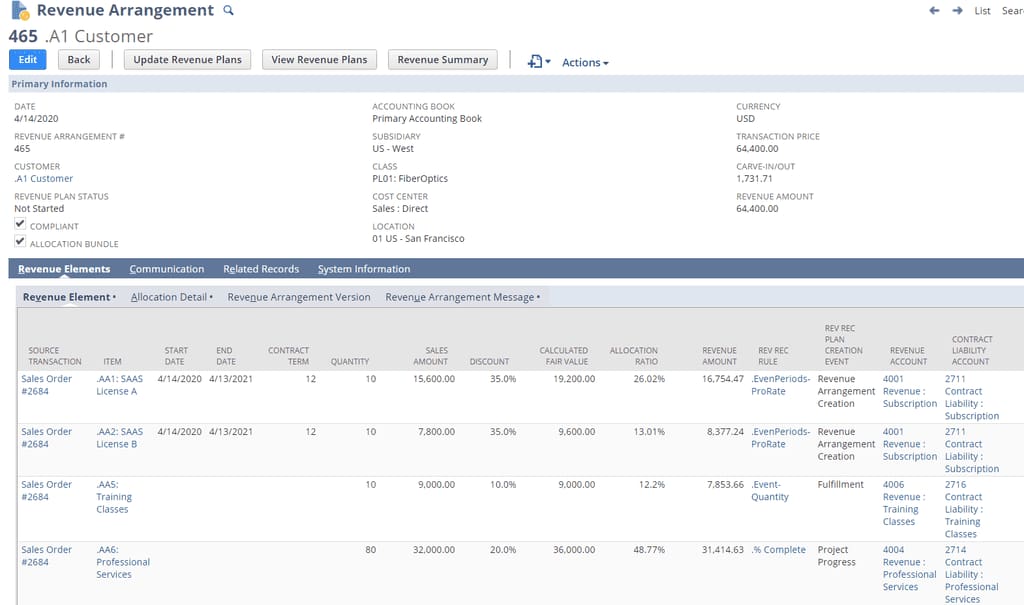When the Financial Accounting Standards Board (FASB) and International Accounting Standards Board (IASB) came together to harmonize revenue recognition standards, the goal was to achieve greater consistency in financial reporting across industries and globally. The resulting rules, ASC 606 and IFRS 15, weren't necessarily intended to make revenue recognition any easier, however. So it shouldn't come as a surprise that more than a year after the new standards took effect for private companies (and two years for public companies), many organizations still struggle to comply.
The Impact of ASC 606 / IFRS 15
For companies that don't sell services of any kind, don't offer subscriptions or other contracts, and deliver goods upon payment, revenue recognition can be as simple as recording a transaction. But for most organizations, it's not so straightforward. Dealing with service agreements, multi-item contracts and tiered or bundled pricing causes headaches for CFOs, controllers and revenue managers everywhere.
While no two organizations are the same, companies trying to comply with ASC 606 / IFRS 15 are dealing with similar revenue recognition challenges:
Performance obligations. A performance obligation is an implied or explicit agreement to deliver goods or provide services to a customer. They are a critical component of every contract. Clients often negotiate terms that differ from a company’s standard agreement. These non-standard contracts can change the way revenue is recognized, making it difficult for accounting to take a “one size fits all” approach.
Contracts with multiple line items. More companies are adding services to their product mix to create new revenue streams. But while revenue from the sale of physical goods is recognized when items are shipped, services revenue is typically recognized over multiple accounting periods. Contracts that include both require extra attention to ensure revenue from each line item is managed correctly.
Bundled solutions. Product and service bundles are attractive both to sellers and their customers. The combined price, however, is generally less than it would be if the individual components were sold separately. To report revenue accurately, the discount has to be applied proportionally over the life of the service agreement.
Deferred revenue. Managing and reporting deferred revenue can create compliance issues. When customers pay up front for services not yet delivered, the value of those services becomes a liability on the balance sheet. As the service is delivered, the liability is converted into revenue. Tracking these details for every client and every customer is a time-consuming activity with a high risk of errors.
These challenges are particularly acute for companies that are confronting these issues for the first time, either because previous rules for their industry didn’t require complex reporting, or because they’ve developed new product and service combinations, changed their business model or implemented a new pricing strategy.
The Five-Step Framework
The current FASB / IASB standards provide a five-step framework for making revenue recognition decisions:
- Identify contracts with customers
- Identify the separate performance obligations in each contract
- Determine the transaction price
- Allocate the transaction price to the performance obligations in the contract
- Recognize revenue when or as a performance obligation is satisfied
All too often, these steps aren’t reviewed until near the end of an accounting period. A few days before the close process begins, calls and emails go out requesting project updates and the timing of deliverables. And because deals are often closed at the end of the month, quarter or year, there is added pressure on accounting to get contract details recorded and invoices generated ASAP.
What’s needed is a way to embed these steps into contract management and accounting procedures so they become part of the daily routine, instead of being triggered by end-of month deadlines.
Automating Revenue Recognition
Current revenue recognition standards revolve around the completion of performance objectives, which are typically spelled out in contracts or service agreements. In many cases, these objectives are standardized, with little or no variation from customer to customer. Yet revenue recognition schedules must still be set up individually for each contract—a time consuming, manual task—where they are frequently managed in spreadsheets.
NetSuite Revenue Management simplifies this process, eliminating spreadsheets and repetitive data entry. Users can create specific recognition rules for each product and/or service they offer and easily link them to the specific line items in a customer contract. Revenue is then recognized automatically based on the assigned schedule or milestones, improving compliance by ensuring revenue recognition principles outlined in ASC 606 / IFRS 15 are applied consistently. The accounting team can now focus on more value-added activities, and because revenue management is integrated with NetSuite financials, the monthly close process runs more smoothly.





